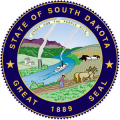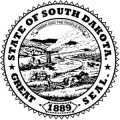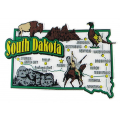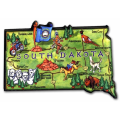South Dakota is home to a variety of nursing programs, making it one of the most appealing places for aspiring nursing students. To make an informed choice about their future career path, prospective students should understand the different types of programs available. Two of the most common are licensed practical nursing (LPN) certificate programs and registered nursing (RN) degree programs.
Licensed practical nurses
South Dakota
We've organized a comprehensive list of South Dakota nursing schools. Below you'll find information on specific nursing programs such as LPN certificates and ADN, BSN, and MSN degrees.
South Dakota nursing programs and careers
City-specific information
With a population of more than 12,000 registered nurses (RNs), South Dakota has the second-highest per-capita concentration of RN jobs in the nation. The state is also home to a large number of licensed practical nurses (LPNs) and certified nursing assistants (CNAs). Nursing professionals across all three roles are in high demand across the state. This is especially true in South Dakota’s largest city, Sioux Falls.
After several years of practice as a registered nurse (RN), many RNs make the decision to advance their careers. This often requires an advanced degree such as a master of science in nursing (MSN). The MSN degree prepares students to become advanced practice registered nurses (APRNs) and fill specialized roles such as nurse practitioner, nurse midwife, and nurse anesthetist.
An overview of MSN programs
A bachelor of science in nursing (BSN) is one of the most respected degrees for a registered nurse (RN). These programs have enjoyed significant interest recently, as employers increasingly prefer BSN candidates for new hires and promotions. Bachelor’s degree-holders are best prepared for the complex decision-making in today’s healthcare industry.
Overview of BSN programs
An associate’s degree in nursing (ADN) provides entry into registered nursing (RN) with significantly less time and financial investment than a bachelor of science in nursing (BSN). Requiring just two years of fulltime study, ADN programs provide the quickest pathway for South Dakota’s aspiring RNs to enter the workforce.
ADN program overview
Affordable and brief, a licensed practical nursing (LPN) certificate program is the preferred pathway for many aspiring nurses. These programs provide the medical training students need to pass the NCLEX-PN national licensure exam and quickly enter the workforce.
Overview of LPN programs
Tuition fees are a significant expense for potential nursing students. Costs can vary greatly based on several factors, including geographic location, nursing role (certified nursing assistant vs. licensed practical nurse vs. registered nurse), and program length (certificate vs. associate’s degree vs. bachelor’s degree). Costs will also differ significantly depending on whether or not the school receives public funding. For example, Augustana College, a large private school with 1,700 enrollees, costs more than $37,000 per year to attend.
Career opportunities, prestige, and a first-class education are just a few of the winning characteristics of private nursing schools. For aspiring nurses who want a nurturing learning environment, a private school might be the best option. Before taking the plunge, learn more about private nursing schools and what they have to offer.
Overview of private nursing schools
South Dakota’s public nursing schools are well-known for offering first-rate yet affordable education. The state is home to a handful of public colleges and universities with accredited nursing programs. Like private nursing schools, public schools offer several education pathways that require anywhere from a few months to a few years for completion.
Overview of public nursing schools
South Dakota is home to a variety of nursing programs, making it one of the most appealing places for aspiring nursing students. To make an informed choice about their future career path, prospective students should understand the different types of programs available. Two of the most common are licensed practical nursing (LPN) certificate programs and registered nursing (RN) degree programs.
Licensed practical nurses









